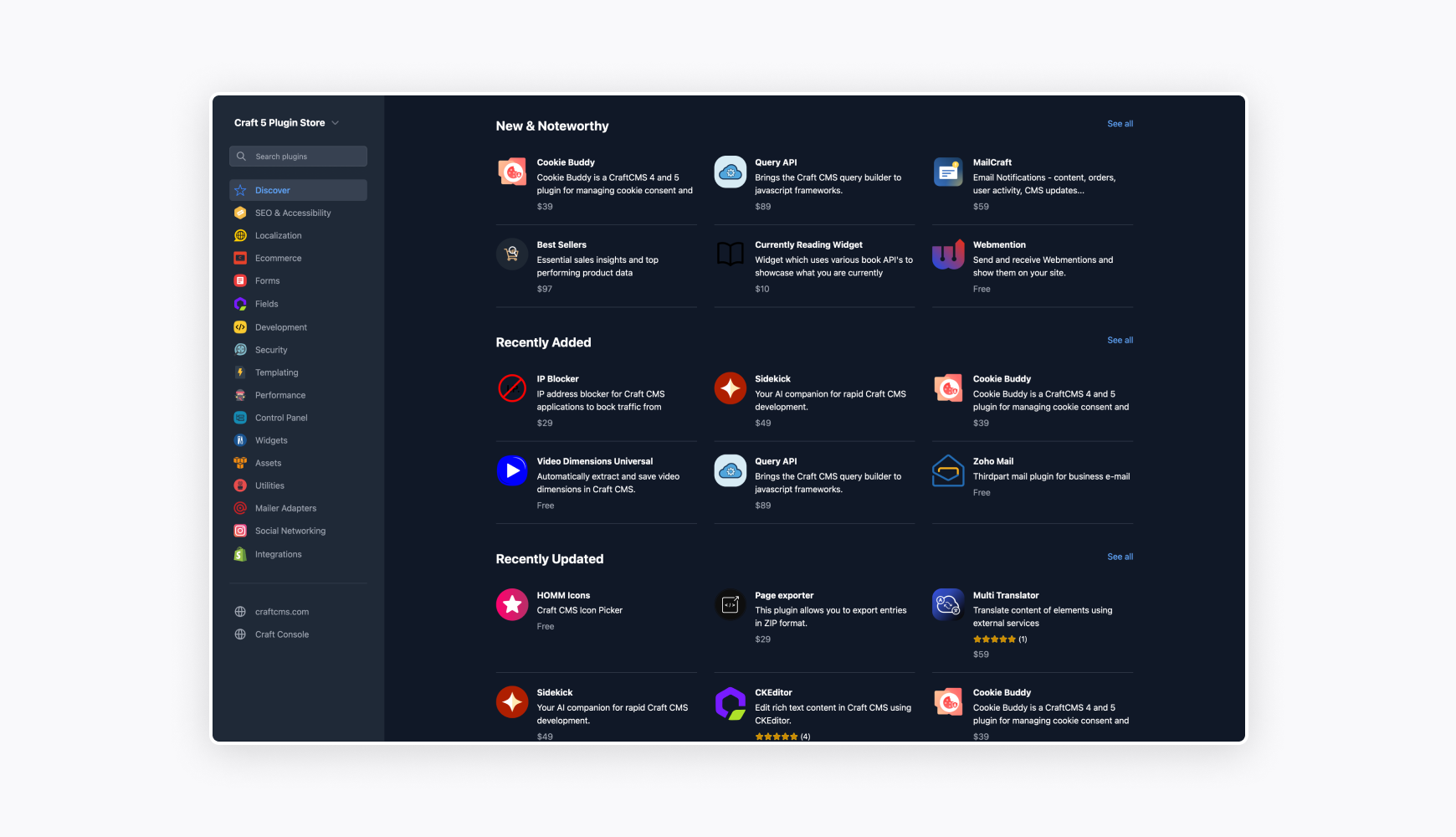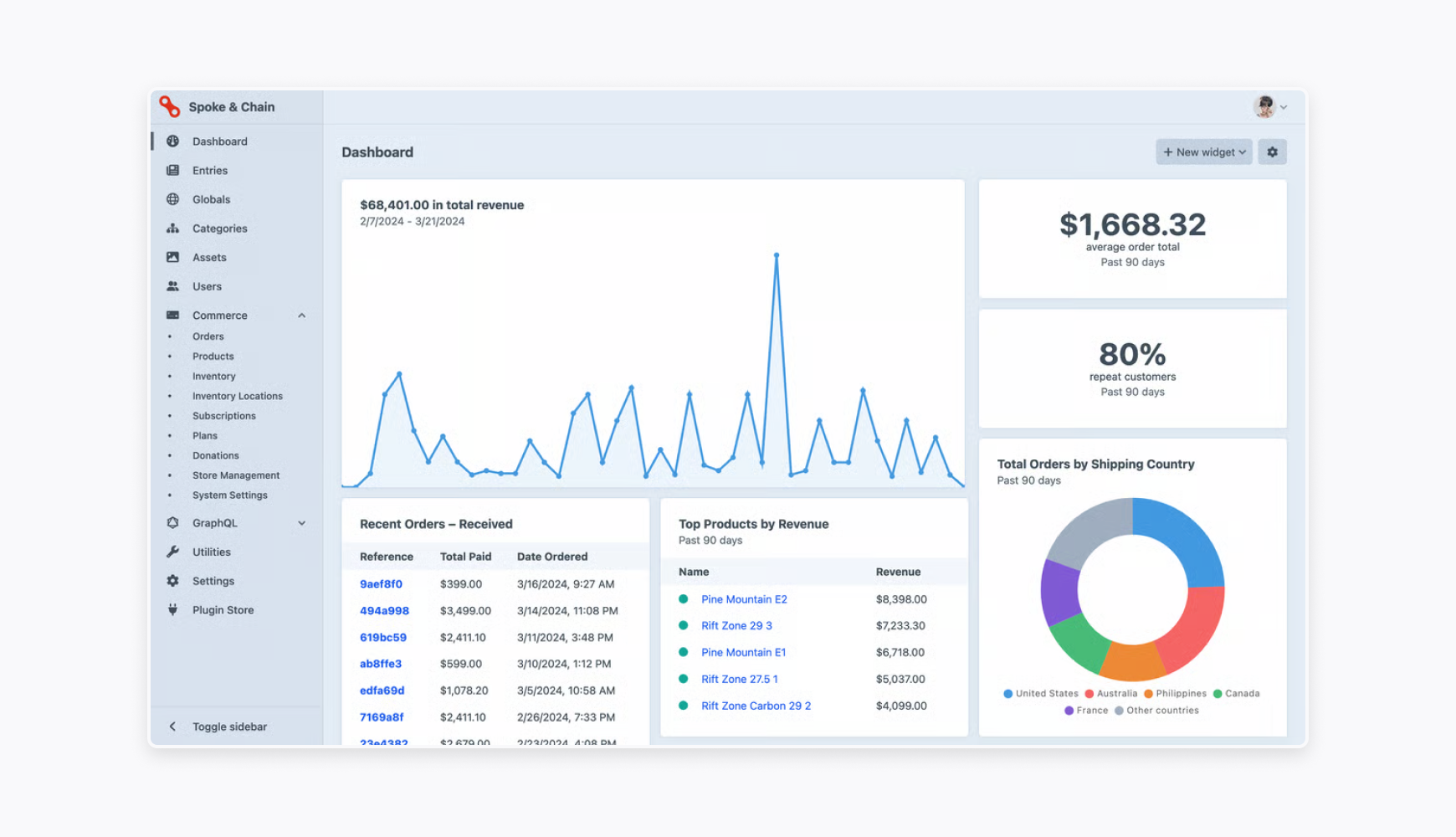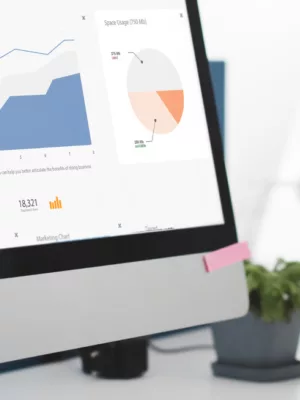
The advantages of a custom CRM platform include tailored workflows, complete feature control, scalable flexibility, enhanced data security, custom reporting capabilities, competitive differentiation, vendor independence, improved user adoption, long-term cost savings, and superior customer experiences.
Every business has unique workflows, customer journeys, and operational needs. While standard CRM solutions offer convenience, they often force companies to adapt their processes to fit the software—not the other way around. This is where custom CRM platforms shine.
A custom CRM platform is designed specifically for business requirements, allowing companies to manage customer relationships exactly how they need to. Unlike pre-packaged solutions, custom platforms provide flexibility that can transform how businesses connect with customers and drive growth.
Let's explore the key advantages of a custom CRM platform and why more businesses are choosing tailored solutions over generic alternatives.
10 Key Benefits of a Custom CRM Platform
1. Tailored to Your Unique Business Processes
Off-the-shelf CRMs follow a one-size-fits-most approach that rarely aligns perfectly with how businesses actually operate. A custom CRM platform, however, mirrors exact workflows, pipelines, reporting structures, and customer journeys.
For instance, if a company manages both retail and wholesale clients with different sales approaches, a custom CRM can support separate workflows for each client type instead of forcing both into a single rigid structure. This perfect alignment with operations eliminates workflow compromises and reduces the friction of digital transformation.
The advantages of a custom CRM platform extend beyond workflow optimization to giving you complete control over every feature you implement.
2. Complete Control Over Features & Integrations

With a custom CRM platform, companies choose exactly what the system does—no unnecessary features they're paying for but never use. This targeted approach ensures every function serves a purpose in business operations.
Businesses gain the ability to seamlessly integrate with:
- Proprietary tools and systems
- Third-party applications
- Inventory management systems
- Accounting software
- Marketing platforms
Imagine automatically adjusting stock levels after each closed deal by connecting a CRM directly to an inventory system. These integrations create a cohesive ecosystem where information flows naturally between all business tools.
The benefits of a custom CRM platform include unparalleled scalability that standard solutions simply cannot match.
3. Scalability and Flexibility for Growing Businesses
As businesses evolve, custom CRMs can evolve with them. Companies can easily add new modules or functionality without waiting for vendor updates or paying for higher subscription tiers.
This flexibility allows businesses to:
- Start with basic lead management and customer records
- Gradually implement marketing automation as teams grow
- Add advanced analytics when ready to leverage deeper insights
- Develop specialized modules unique to their industry
This progressive implementation approach ensures CRM platforms grow in lockstep with business needs rather than constraining operations.
Among the many advantages of a custom CRM platform, enhanced data security might be the most critical for businesses in regulated industries.
4. Enhanced Data Ownership and Security
With off-the-shelf CRMs, customer data typically lives on third-party servers, subject to their security policies and accessibility standards. A custom CRM platform lets organizations control precisely where data resides—whether on-premises or in a private cloud—and how it's accessed.
This control is particularly valuable for:
- Healthcare organizations handling protected patient information
- Financial services companies managing sensitive client data
- Government contractors with confidentiality requirements
- Businesses with proprietary customer insights they consider competitive assets
Data security strategy becomes an extension of overall business strategy rather than an afterthought.
The reporting capabilities represent one of the most practical benefits of a custom CRM platform for decision-makers.
5. Powerful Custom Reporting and Analytics

Generic CRMs offer standard reports that rarely capture the specific metrics that drive your business. With a custom platform, you build reports and dashboards tailored to your precise KPIs and decision-making needs.
For example, a luxury interior design firm might track project inquiries by style preference, budget range, and room type—granular data points a standard CRM wouldn't capture natively. These insights enable more informed business decisions based on your unique market position.
The advantages of a custom CRM platform extend beyond internal operations to creating distinct competitive edges in your market.
6. Gaining Competitive Advantage
A custom CRM transforms into an operational asset that rivals cannot readily acquire. It can automate niche processes and deliver unique client experiences that differentiate your business.
Consider a system that automatically generates beautifully designed PDF project proposals with images, quotes, and customer details pulled directly from the CRM. These capabilities can transform ordinary business processes into extraordinary customer experiences that set your company apart.
The independence provided by a custom solution is among the most strategic benefits of a custom CRM platform.
7. Freedom from Vendor Lock-in
With a custom CRM platform, you own the code and infrastructure.
This ownership eliminates common risks associated with commercial CRM products:
- Sudden pricing increases
- Deprecated features you rely on
- Platform shutdowns or acquisitions
- Forced migrations to newer versions
You decide when and how to upgrade your system based on business needs rather than vendor timelines. This control provides stability for mission-critical business processes.
The advantages of a custom CRM platform are only realized when your team actually uses the system.
8. Improved User Adoption Rates
When a CRM is built around your existing processes with input from your staff, it's significantly easier for teams to embrace. Custom platforms reduce the learning curve and resistance to change that often plague generic CRM implementations.
You can design the UI/UX specifically for your team's working style, incorporating familiar terminology, workflows, and visual elements. This familiarity drives higher usage rates and ensures you capture the customer data necessary for meaningful insights.
While upfront costs are higher, the long-term benefits of a custom CRM platform often include substantial financial advantages.
9. Long-term Cost Efficiency
Although custom development requires greater initial investment than subscribing to SaaS CRMs, the long-term math often favors custom solutions through:
- Elimination of recurring per-user license fees
- No payment for unwanted or unused features
- Reduced costs for workarounds or third-party plugins
- Operational efficiency gains through tailored automation
For growing businesses, these savings compound over time, eventually surpassing the initial development investment and continuing to deliver value.
Perhaps the most important advantages of a custom CRM platform are those experienced by your customers.
10. Enhanced Customer Experience
Custom workflows allow you to offer faster, more personalized service that sets your business apart. Your platform can automatically trigger personalized experiences based on customer behavior, preferences, or status.
Imagine automatically initiating custom onboarding sequences for VIP clients or sending maintenance reminders for products with warranties. These thoughtful touches, enabled by your custom CRM platform, create memorable customer experiences that drive loyalty and word-of-mouth referrals.
When is a Custom CRM Platform Worth the Investment?
A custom CRM platform delivers the greatest value for businesses that:
- Have niche processes or non-standard sales cycles
- Need to integrate with custom-built tools or legacy systems
- Operate in regulated industries with specific compliance requirements
- Want to treat customer data as a proprietary asset
- Have mid to long-term plans for scaling operations
Not sure if your business fits these criteria? Take our free 10-question assessment to get personalized recommendations on whether a custom CRM platform is the right investment for your specific needs.
The decision ultimately comes down to how central customer relationship management is to your competitive strategy and whether standard tools can adequately support your vision.
Conclusion
The advantages of a custom CRM platform go far beyond basic functionality. A well-designed custom solution transforms how you engage with customers, streamlines operations, and provides the agility to adapt as your business evolves. While not every company needs a custom platform, those that invest in tailored solutions often find they've gained not just a tool, but a significant business asset that continues delivering value year after year.
By aligning perfectly with your unique processes, a custom CRM platform eliminates the compromises inherent in off-the-shelf solutions and creates opportunities for innovation that simply aren't possible with generic software.
Ready to Explore a Custom CRM Platform for Your Business?

Take the first step toward a CRM solution designed exactly for your needs. Our team can assess your current processes, identify opportunities for improvement, and help you determine if a custom CRM platform is right for your business. Contact us today for a consultation and discover how a tailored approach to customer relationship management could transform your operations.











